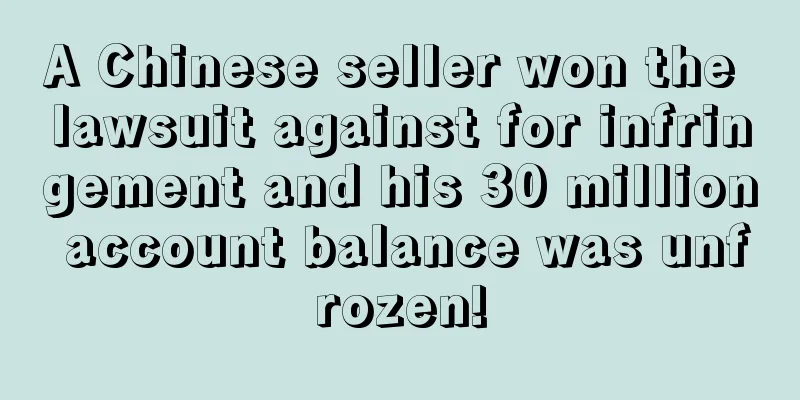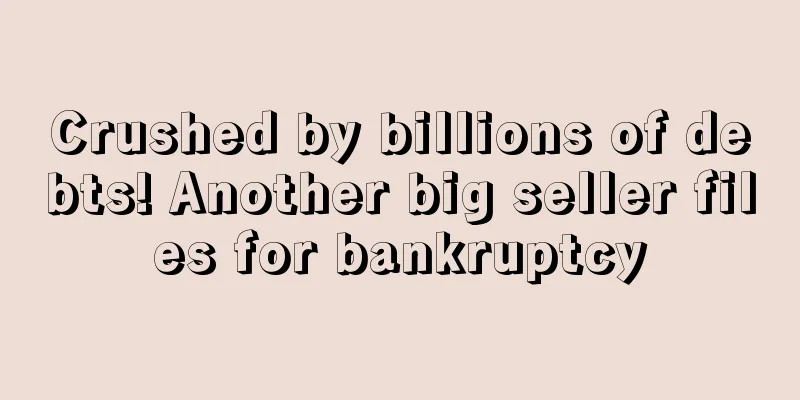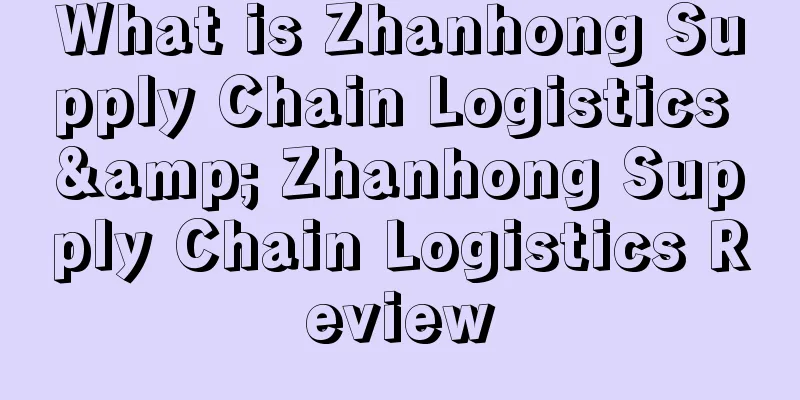A Chinese seller won the lawsuit against for infringement and his 30 million account balance was unfrozen!

|
Nowadays, sellers seem to be at the bottom of the cross-border e-commerce food chain. Freight forwarders, Amazon, VAT, training institutions, etc. can all cut a handful of leeks. Now even overseas law firms are sucking the blood of sellers. For example, GBC's revenue last year was 6 billion. Phishing, freezing accounts, and extremely high compensation have become the means for these law firms to make profits. Sellers are miserable, but they don't know how to resist...
But the good news is that there is a positive sign in the latest case this year. The Chinese seller won the case against the defendant for infringement, and the $5 million account balance was unfrozen. This is encouraging to thousands of cross-border sellers.
Extending from the issue of infringing defendants, in fact, sellers do not know how to deal with infringing defendants, nor do they know how to identify unreasonable claims from law firms, or even how to respond to lawsuits. For overseas sellers, there is still a long way to go.
US court rarely supports Chinese sellers
Chinese sellers hate rogue American law firms. Insurance fraud and sting enforcement are common. Due to cost factors, the defendant cross-border sellers have no choice but to either settle or give up their accounts. Few people respond to the lawsuit.
But there has been good news recently. According to the latest report from the official account [Overseas Case Observation], an infringement lawsuit ( MATTEL INC. Plaintiff, v. THE ENTITIES DBA GOODMENOW AT THE URL GOODMENOW.COM ,Etc., et al., Defendants (Case 1:20-cv-11075-NRB) has attracted attention.
The United States District Court for the Southern District of New York supported the cross-border e-commerce seller, ruling that the plaintiff's preservation measures were inappropriate and agreeing to unblock the defendant's Paypal account of more than $5 million that was frozen due to pre-litigation property preservation in the intellectual property infringement lawsuit . The seller is currently filing a lawsuit for compensation for the economic losses caused by the plaintiff's abuse of pre-litigation preservation measures.
In this case, the plaintiff is Mattel, also known as Mattel, the world's largest toy company and a leader in the design, production and sales of children's products.
Mattel's major brands include Barbie®, the most popular and best-selling fashion doll, as well as Hot Wheels®, Matchbox®, American Girl®, Radica®, Tyco® R/C and Fisher-Price® brands, including Little People®, Power Wheels® and a range of educational toys.
In this case, the Chinese seller sold toy dolls named "Barbie" that infringed the copyright in the pictures. The sales time was October-November 2020.
Mattel sued the seller in December 2020 for counterfeiting, trademark infringement, and infringement of the copyright of the Barbie trademark and the Barbie image. In addition, Mattel filed a complaint and applied for a temporary injunction ("TRO") to freeze the defendant's PayPal account funds. As a result, all 11 of the seller's PayPal accounts were frozen, with an amount exceeding US$5 million, and the Chinese seller was also required to attend a hearing in January this year.
The seller also actively responded and argued, and Mattel demanded that the loss be expected to exceed $2 million according to the statutory maximum limit. It should be noted that according to the US Trademark Law, the defendant's behavior constitutes intentional infringement of trademark rights, and the statutory compensation amount can be up to $2 million.
But what’s interesting is that the total amount of money this seller earned from selling infringing products was $131,000, with a profit of only $13,000, which is far from the $2 million that Mattel wanted to claim and the $5 million that was frozen.
After a round of defense, the seller's representative lawyer convinced the judge, and the final verdict showed that the judge only supported the requirement that the seller maintain a balance of no less than $13,000 in his PayPal account. (That is, the judge did not agree with Mattel freezing the seller's $5 million PayPal account, and the remaining balance in the account was at his disposal except for $13,000.)
Coincidentally, good news also came in January 2020. Justice lawyers took up the challenge and Chinese cross-border e-commerce defeated the notorious rogue law firm GBC in the United States. GBC withdrew the lawsuit and the case was selected as "Today's Case" in Letters Blogatory (a famous international law review blog in the American legal community). Shortly afterwards, the Massachusetts Federal Court cited the precedent of this case, which changed the laws in Massachusetts and gave great encouragement to cross-border e-commerce sellers.
“Rogue law firms” are slashing profits like crazy: settlement payments are 80% of the account balance
There are tens of thousands of infringing sellers like the defendants mentioned above in the cross-border e-commerce circle, but most sellers choose to settle.
On New Year's Eve this year, a seller also asked Yien for help because of an American law firm: "My friend encountered a rogue law firm and his account was frozen for tens of thousands of yuan. He couldn't get the money back. Although the account is still selling, he has received a third-party email asking for a 15% handling fee. The settlement fee accounts for another 50%, so in the end he can only get back 35%."
On the other hand, the American law firm seemed to understand what the seller cared about. Even if the compensation was as high as $150,000, it could be paid in installments; because the account could not be sold during the lawsuit; because of the time cost, they knew that the seller did not want to appear in court, and the amount of the settlement could be negotiated; because the account was very valuable, they knew that the seller did not want to lose the account, and they also understood that the seller only wanted to settle.
If an infringement is alleged on the Amazon platform, some sellers will want to use Amazon's patent neutrality evaluation program.
Amazon 's patent neutral evaluation process is that an attorney or exclusive licensee will quickly evaluate patent infringement complaints posted by sellers on Amazon . In a neutral patent evaluation, a neutral evaluator reviews patent infringement complaints against third-party product listings. The evaluator will make a ruling on whether the patent scope covers the relevant product listing. The evaluator may rule that the patent scope does not cover the product listing .
If the evaluator concludes that the accused product is infringing , Amazon will remove the accused product , and the evaluation fee is not low, which is $4,000, including the evaluator's remuneration . After the evaluation is completed, the fee will be borne by the losing party in the evaluation.
However, neutral evaluation is expensive and relatively slow, so it is not as convenient as a settlement . Law firms grasp the sellers’ mentality of “making a big deal out of a small deal” and thus come up with a common approach – settlement.
However, the settlement is not as “friendly” as imagined , and law firms often treat sellers as leeks and exploit them.
The situation encountered by one seller was as follows: the total sales of the infringing products was only more than 1,000 US dollars, but after negotiating with the service provider and lawyer and drafting a settlement agreement, he paid a one-time compensation of more than 6,000 US dollars.
Another seller had a sale on Alibaba International Station, selling three samples. However, due to copyright infringement, the brand protection law firm proposed a settlement of $5,000. This law firm sued 103 companies this month...
As the default rule in the industry, the amount of compensation claimed by the law firm is generally at least $3,000, or 80% of the account balance. In other words, even if the sales of a product is only $5,000 and there is $20,000 in the account, 80% of the account balance must be compensated, plus handling fees. If the seller has a high account balance, it will be really miserable.
Some sellers also revealed that there are some organizations that specialize in settling infringement cases, and they are Chinese people cheating Chinese people. Those who persuade the sellers to settle are also lawyer friends.
GBC made a profit of 6 billion yuan last year by sucking the blood of sellers
As we all know, in recent years, Chinese sellers have rapidly emerged on cross-border e-commerce platforms such as Amazon, eBay, and Wish, and Chinese products have spread to all parts of the world with the help of online platforms.
However, in the process, the intellectual property hunting of Chinese sellers also began. Especially in the United States, Chinese sellers were subjected to a storm of attacks. American law firms represented by GBC, which bills itself as the "world trademark police", have used the hunting of Chinese sellers as their "profit model".
For example, law firms such as GBC, Keith, Keener, EPS, and David, which sellers are familiar with and hate very much, mainly use crawler technology to collect evidence of suspected infringement by sellers on cross-border e-commerce platforms . Once they find anything, they pretend to place an order to obtain PayPal account information and transaction information, and use this as evidence to file large-scale lawsuits in local U.S. courts, requiring the platform to freeze the funds in the seller's account.
After receiving the TRO (temporary restraining order) email, Chinese sellers often choose to settle privately because they are unfamiliar with US law, dare not confront, or have high litigation costs and limited time. At this time, these rogue law firms, which are waiting for sellers to jump in with open pockets, will ask for a large settlement fee. For example, the settlement fee collected by GBC will account for 50% or even 90% of the seller's frozen funds. The settlement fee deducted from the seller's account is finally divided between the law firm and the plaintiff (brand).
Through this streamlined and batch-based approach, these law firms earn a lot of revenue from Chinese sellers.
According to relevant information, GBC's revenue in 2020 was nearly 1 billion US dollars (equivalent to about 6.4 billion yuan), far exceeding many domestic big sellers. It can be said that it is sucking the blood of sellers to enrich itself. At the same time, it is conceivable that behind the huge income are the bitterness and tears of many sellers.
The World Trademark Examination Organization's recently released U.S. Trademark Litigation Activity Review Report shows that GBC accepted a total of 243 trademark litigation cases in 2020. In these lawsuits, GBC enforced more than 22,000 market targets (platform sellers) and 5,900 websites (independent stations) .
The seller hates the rogue behavior of such law firms:
"- Later I went to the United States to develop some black friends, and specialized in beating up these lawyers to vent my anger on behalf of the Chinese sellers. ——These hooligans were put in sacks, dragged to a dark corner and beaten. "
The largest loss was over 5 million, and half of the sellers had received 5+ infringement complaints
The difficulty in preventing infringement lawsuits is a headache for sellers. A recent survey conducted by Ennet shows that more than 70% ( 72%) of sellers have encountered "fishing enforcement" by foreign law firms, a number that is so high that it is hard to believe.
Cross-border intellectual property rights have always been a big pitfall, and many sellers have even fallen into this pit repeatedly. The survey results show that nearly 20% ( 19%) of sellers have encountered more than 5 infringement lawsuits since entering the industry , and the remaining more than 60% ( 64%) of sellers have also encountered 1-5 infringement lawsuits to varying degrees.
So what will sellers do after being sued for infringement?
As we thought, most sellers chose to settle out of court. The survey results show that nearly 50% ( 48%) of sellers chose to pay some settlement money and settle out of court. Nearly 30% (28%) of sellers said that their account balance was not much, so they gave up and re-registered a new account. Less than 30% (24%) of sellers believed that they had nothing to fear and chose to actively respond to the lawsuit.
Why do so many sellers choose to settle out of court? What are their concerns?
The survey shows that nearly half ( 44%) of sellers responded to the lawsuit because they could not find professional legal professionals to help them and lacked understanding of local laws and judicial procedures. In addition, nearly 60% (56%) of sellers said that the cost of responding to the lawsuit was too high.
When faced with infringement lawsuits, whether the seller responds to the lawsuit, settles the case, or abandons the account, it will cause certain losses. In these cases, the sellers lose as little as 30,000 to 50,000 yuan, and as much as millions of yuan.
According to a survey conducted by Ennet, in cases of “fishing enforcement” infringement, nearly half (46%) of the sellers suffered a maximum loss of less than 50,000 yuan (which also indirectly reflects the reasons why sellers gave up responding to the lawsuit and chose to settle: on the one hand, the amount involved was small, and on the other hand, the cost of responding to the lawsuit was high). Even 11% of the sellers said that the maximum loss they suffered was as high as one million, and 7% of the sellers had a maximum loss of more than 5 million yuan.
From the above, we can see that the cost of being sued for infringement is very high, and the infringement cases that often happen around us are also constantly reminding sellers that infringing products should not be touched.
In this case, if the seller knows that it is an infringing product, will he still sell it?
Surprisingly, in the survey, nearly 30% ( 26%) of people said that as long as the profit is high, they can buy a wave and then leave. However, nearly half (48%) of sellers said that they are really afraid and dare not sell.
Lawyer's statement: Funds in absentia cases will not be automatically unfrozen
After being sued for infringement, sellers are often very confused: should they respond to the lawsuit or settle? What if the law firm comes to cause trouble again after the settlement? In response to these questions, Yien.com interviewed Liu Haifeng, a lawyer from the cross-border e-commerce lawyer service team of Guangdong Hancheng Law Firm.
E-EN: After receiving the TRO freezing email, how many ways are there for sellers to get back their account funds? What is the best way for sellers to handle this?
Liu Haifeng: The only legal solutions are to respond to the lawsuit and to reach a settlement. There is no best solution. The seller needs to choose one of the solutions based on the circumstances of the case and his or her own ability.
Een.com: In the case where the seller is absent from the law firm, will the account funds be automatically unfrozen? How long will it take to be unfrozen (if possible)?
Liu Haifeng: After a default judgment, the platform will execute the judgment instructions to clear the account funds. Unless there is an operational error on the platform, in most cases the funds will not be automatically unfrozen, but will only be transferred away.
At present, after a default judgment, AliExpress, the International Station and the Dunhuang platform will not be forced to clear the funds due to the platform's protection policy. However, even if it cannot be cleared, according to the current handling situation, these funds will remain frozen in the platform account and will not be unfrozen, and neither the seller nor the other party can use them.
Een.com: Is a private settlement permanent? Is there an official record of a private settlement? Can the brand make a comeback?
Liu Haifeng: According to our years of experience, as long as the client who reaches a settlement no longer lists the related infringing products after the settlement, they will basically not be sued again for the same matter. There are very few cases where the account is repeatedly frozen due to operational errors, but after explaining the situation to the other party and showing the settlement documents, the other party will immediately restore the account.
The settlement only solves the problem caused by the infringement of the product this time, and cannot avoid being sued again for repeated infringement in the future.
A settlement usually includes a settlement agreement signed by both parties and a withdrawal /case closing document, which are legally binding. In conclusion:
In the cross-border circle, the issue of infringement has become a commonplace topic. In the face of this problem, the editor believes that it will eventually return to the "brand". The reason why those rogue law firms can catch the sellers' weak points is precisely because they have mastered this weapon.
Therefore, if sellers do not want to be strangled by law firms, or want to go further in the future, they must establish brand awareness. In the short term, having a brand can not only avoid many infringement risks, but also gain more initiative in the competition with peers. In the long run, the brand can also bring higher premiums to products. Infringement thaw |
<<: Entering the $33 billion resale market, Rent the Runway undergoes major changes
Recommend
How can overseas sellers tap into the multi-billion-dollar women’s clothing market?
DMONSTUDIO, which caused a lot of discussion at t...
What is Transit 4K? Transit 4K Review, Features
Shenzhen Qianhai Sifang Modern Logistics Co., Ltd...
Amazon says sellers don’t need to compare prices with Temu
People who have used Amazon generally know that t...
Too sudden! Shenzhen's best-selling products may be banned in the United States
When Chinese brands explore overseas markets, the...
The number of orders increased fivefold! Sellers: Multi-platform layout is really good
Cross-border e-commerce is one of the most popula...
Shenzhen's popular Aoji brand has made another big move! Seller: The leeks are coming
For a long time, in the hearts of cross-border e-...
Truth Social, a new social media platform in the United States, topped the Apple App Store in terms of downloads after its launch
According to foreign media reports, former US Pre...
Malaysian airline AirAsia launches beauty business in Indonesia
Malaysian airline AirAsia is expanding its reach ...
What is o-caf super-burning brand public relations? o-caf super-burning brand public relations Review, Features
o-caf super-burning brand public relations grows ...
What is Dropbox? Dropbox Review, Features
Dropbox is a practical and free cloud storage sof...
What is International Express Logistics Network? International Express Logistics Network Review, Features
The International Express Logistics Network provi...
Esty completes acquisition of Depop for $1.625 billion
Today, Esty announced that it has completed the p...
What is shiptu? shiptu Review, Features
shiptu is an online e-commerce store and internati...
Unable to bear it any longer, the EU proposes to suspend tariffs with the US for 6 months
"We have proposed to suspend all mutual tari...
What is Monix? Monix Review, Features
Monix is a multi-currency cross-border wallet t...









